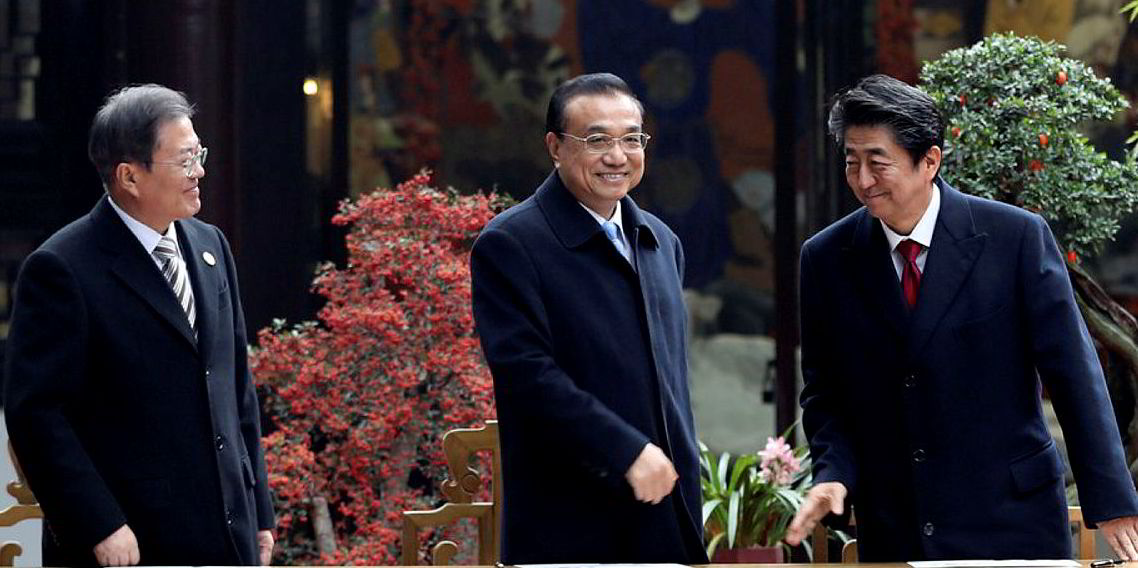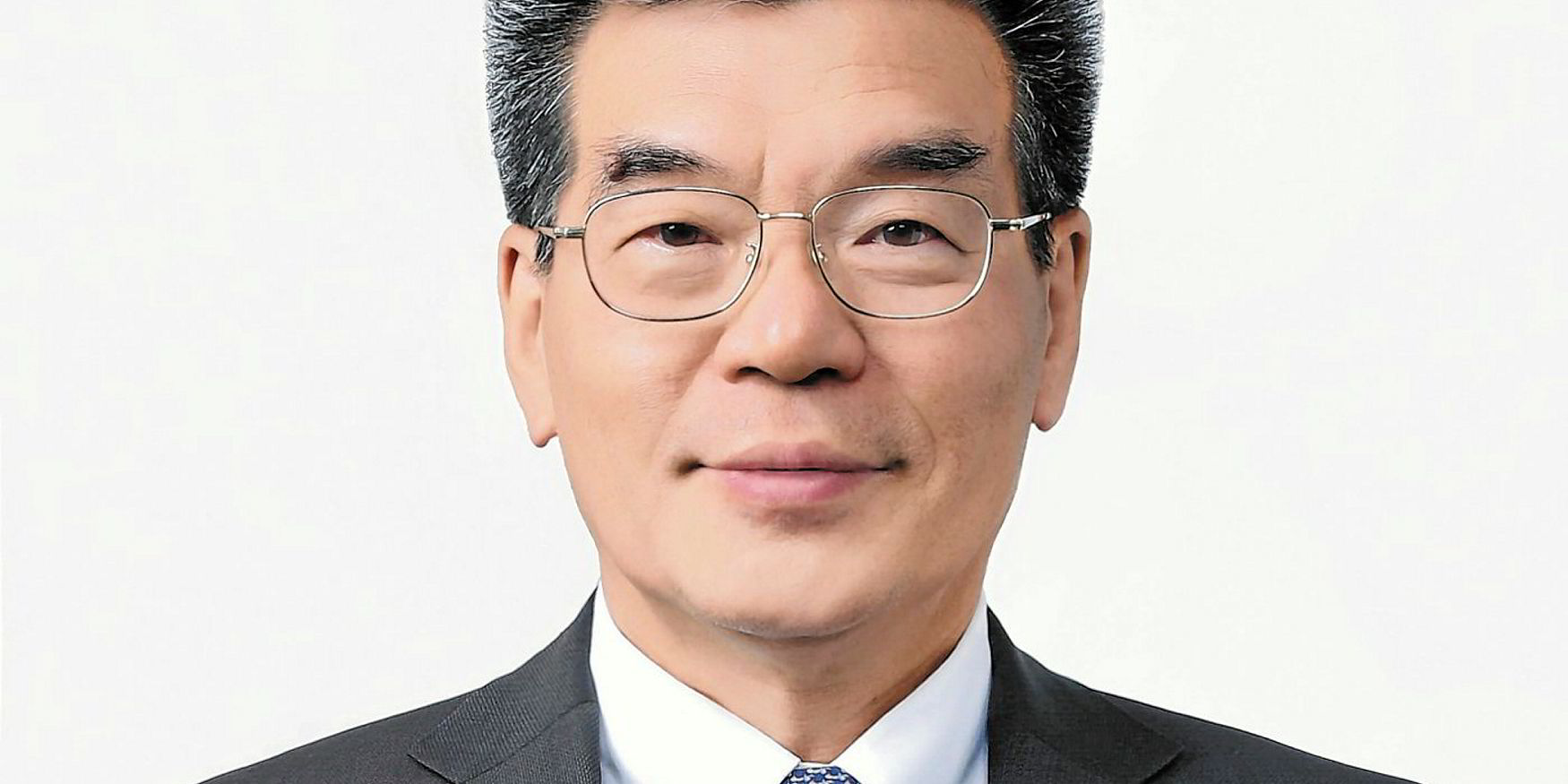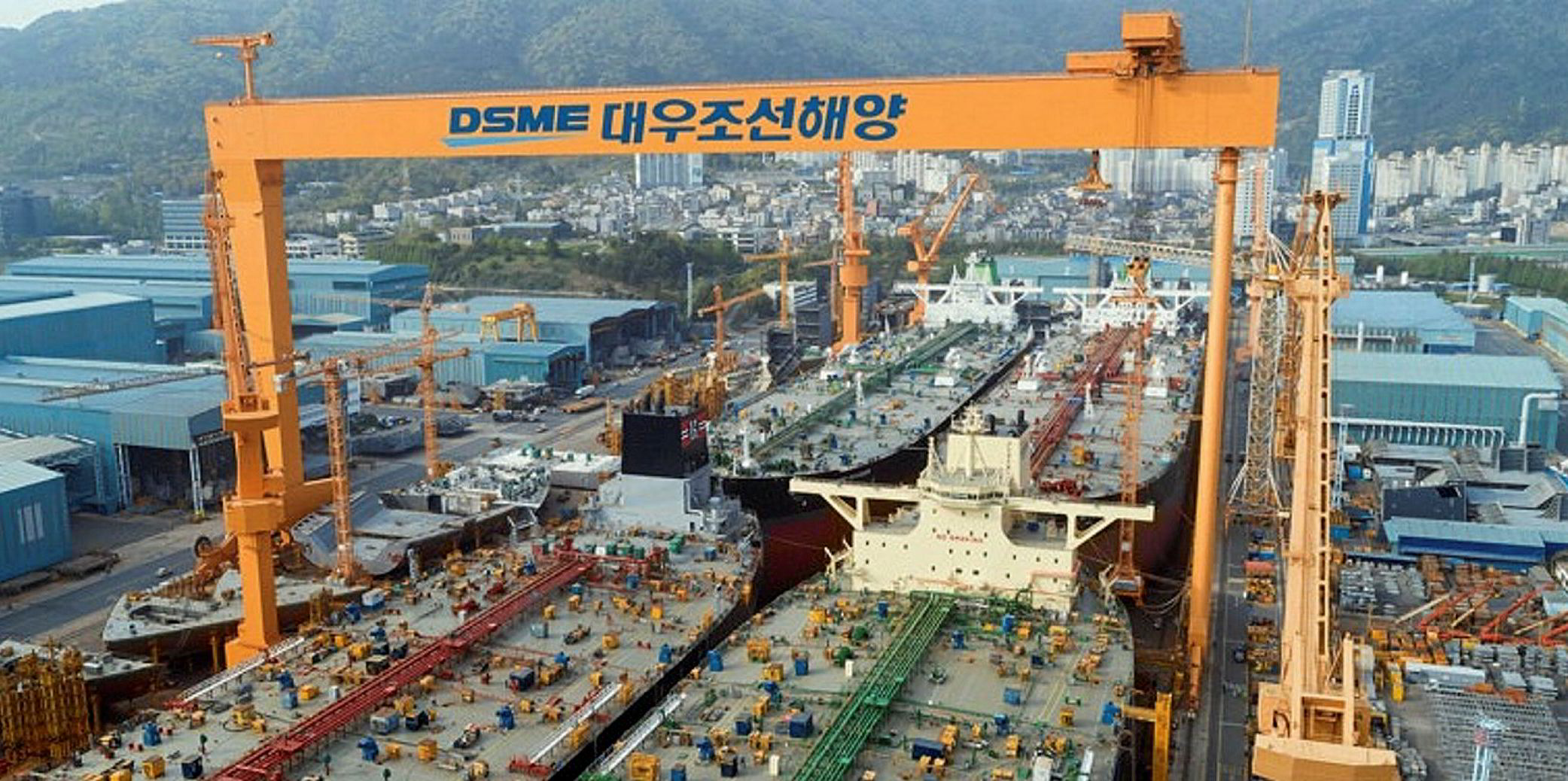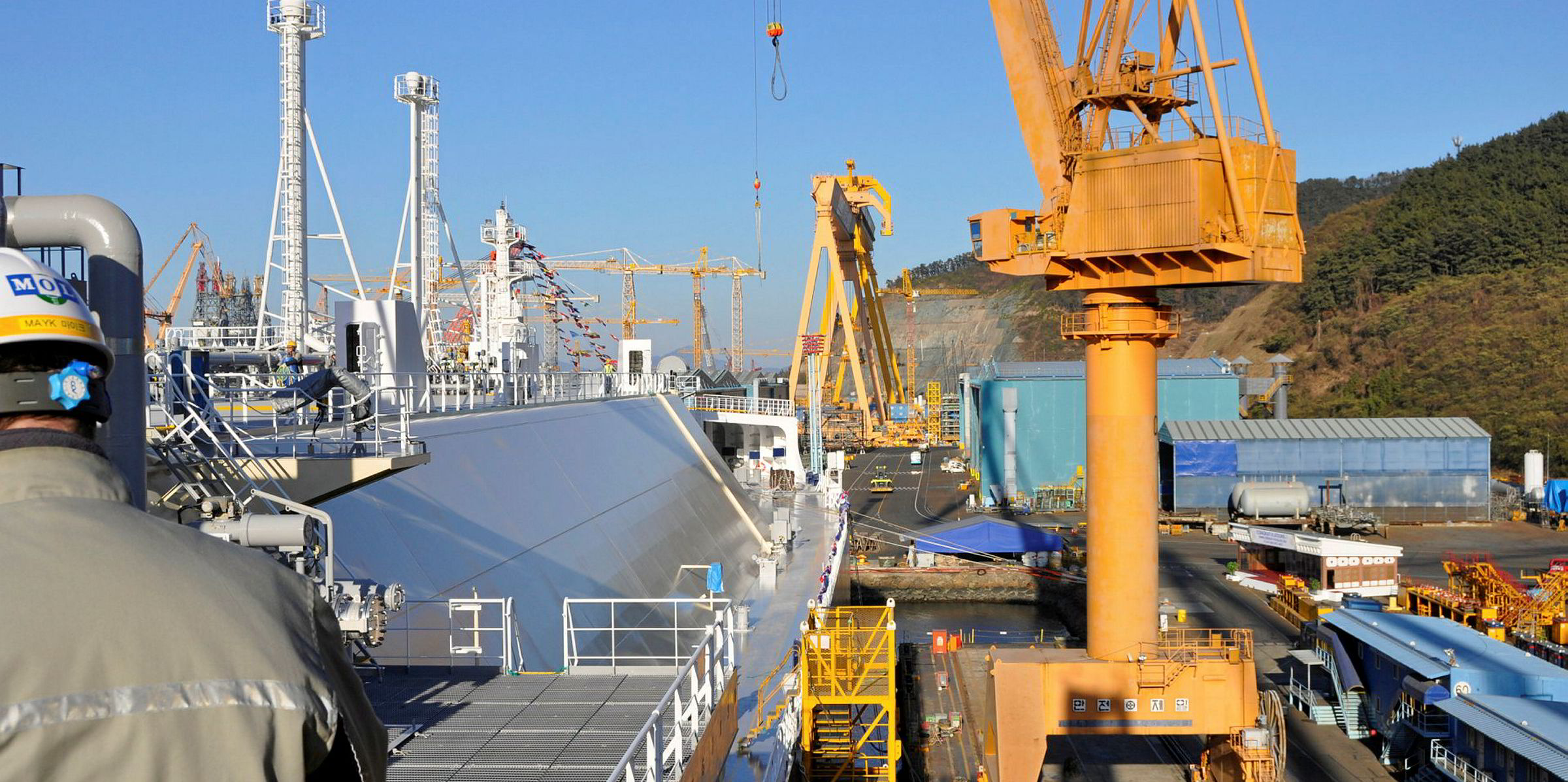One aspect of maritime life that has not been affected by coronavirus is the dispute between Japan and South Korea over shipyard subsidies. Talks under the rules of the World Trade Organization (WTO) continue without resolution — although online rather than in person.
It is hard to see what is going to break this logjam other than an improvement in the global shipbuilding market.
That would relieve the pressure on both sides, although this is not going to happen in the near term because of the pandemic.
Global shipyard orders were down more than 70% in the first quarter, and Clarksons Research Services has predicted new orders are likely to fall by at least 25% in 2020 from last year’s level and by half from 2018.
Betting on a bounceback
The shipbroker’s research arm expects a significant bounce-back next year, but that is banking on coronavirus being brought under control, which looks likely but cannot be guaranteed.
In fact, South Korea could be profiting from the pandemic in terms of its competition with the one country that usually builds more ships: China.
In the first quarter, China took 1.5m cgt, South Korea 360,000 cgt and Japan 180,000 cgt, according to Clarksons. But in February, Chinese shipyards won a solitary order for a containership of 8,000 cgt, whereas South Korea took contracts for eight ships totalling 200,000 cgt.
It is reasonable to predict that China — recovering from being at the centre of the pandemic — is returning to a more normal delivery and order intake.
Swift and decisive
South Korea seemed to control the virus by taking swift, decisive action on quarantine measures and testing. Japan, in contrast, delayed the introduction of a tough lockdown strategy and now faces escalating difficulties.
None of this will help the political or commercial environment in Tokyo and could increase the tension with Seoul over shipbuilding.
It looks as though the two countries may be heading for outside help, with an independent panel perhaps being set up under the aegis of the WTO.
Japan has complained since 2015 that the South Koreans have been unfairly using state money to prop up ailing shipyards and win new orders.
Seoul continues to insist that actions taken to support its yards — most notably through the merger to create DSME — have been done inside WTO rules and avoided market distortion
Seoul continues to insist that actions taken to support its yards — most recently through Hyundai Heavy Industries’ proposed merger with DSME, unveiled last year — have been done inside WTO rules and have avoided market distortion.
And South Korea has had to work that much harder, given it has a tiny domestic shipowning base to call on for orders compared with Japan.
The atmosphere between the two countries was not improved by the Ministry of Oceans and Fisheries in South Korea announcing in 2018 that the public sector would help underwrite orders for up to 200 vessels at domestic yards.
But this was done at a time when the South Korean sector had contracted far more heavily than its rival in Japan.
Global excess capacity in shipbuilding can be traced back to the preceding maritime boom that came to a juddering halt with the 2008 financial crash.
The WTO is an august body that is sorely needed to ensure a semblance of order and fairness in global trading.
Inconclusive result
But it cannot be relied on to find solutions to all problems. When the European Union took South Korea to the WTO in 2005, the result was inconclusive, although the Koreans claimed victory.
In that case, South Korea had introduced a counter-claim that Europe had been unfairly subsidising its own yards to keep them afloat.
The EU has joined as a third party to the Japanese action against South Korea this time, but the Western yards are hopelessly diminished, with the exception of Fincantieri.
The Italian company, which owns Norway’s substantial Vard group and half of STX France, is still the premier builder of cruiseships.
But work has stopped at all of Fincantieri’s Italian yards. The country and the world cruiseship sector have been ravaged by coronavirus, leaving Fincantieri in limbo.
Governments have intervened in many aspects of their national economies in recent weeks to prevent companies going bust.
Meanwhile, few even know what the full engagement is with regard to Chinese state support for its huge network of yards.
The Japan v South Korea spat will rumble on. Do not expect a quick, neat or even clear resolution.






